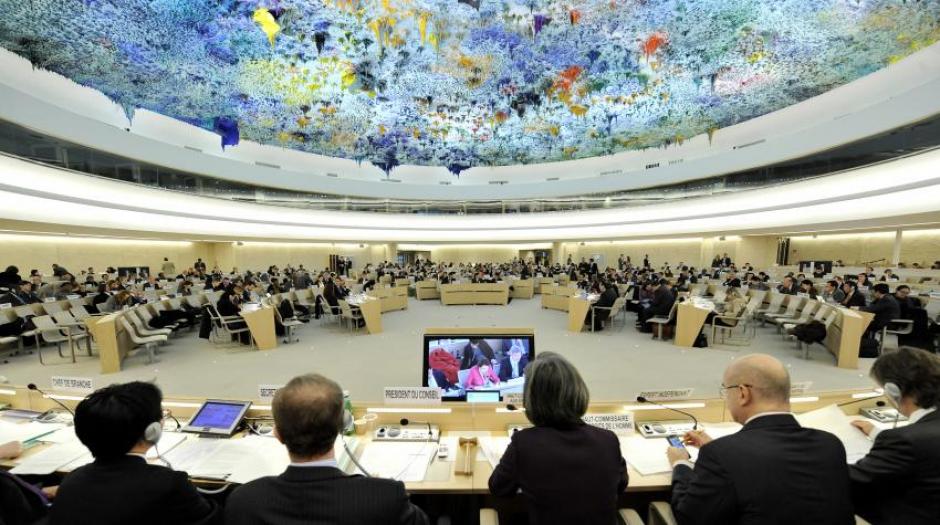
Without human rights, freedom, justice and progress are a daydream
72 years ago, on December 10th, the 58 Member States of the United Nations General Assembly, approved in Paris - with 8 abstentions - the Universal Declaration of Human Rights. Its spirit was nourished by the concept of equality and universality of human rights, overcoming cultural differences, without distinction of any kind, such as race, color, sex, language, religion, political or other opinion, national or social origin, property, birth or other status. To date, 195 countries have signed it.
What has been the evolution, since then, in terms of compliance? The violation of human rights has been reiterated, and finds justification, among others, in the free market economic model; in the defense of human rights, peace, and humanitarianism; in justice and freedom; in democratic systems of government, etc.
When the Declaration in its article 22 says: "Everyone, as a member of society, has the right to social security and is entitled to realization, through national efforts and international cooperation and in accordance with the organization and resources of each State, of the economic, social and cultural rights indispensable for his dignity and the free development of his personality", it leads us to the discussion of economic models. Thus, with the free market economy, in which the State is a simple administrator and private companies take care of the development of their businesses, it is inevitable that budgets for health, education and social security will be progressively cut. And in a second stage, privatization is installed as a solution to this lack of protection, which extends to all fields, leaving it in the hands of private companies, which instead of solving the problem, increase it because only those who can pay for it, that is, 20% of the population, can access it.
If we add to this globalization, the greatest concentration of power ever seen in the hands of a few, and economic interdependence, we see that in all countries, capital attempts against the universal and egalitarian conception of human rights.
Likewise, we observe that under the growing and dangerous military role of the United Nations, in the name of the defense of human rights, peace and humanitarianism, armed invasions in other countries are being justified, violating the sovereignty and self-determination of the peoples. Entire populations have been massacred, plunging them into the greatest poverty, plundering their resources - those that sustain their economies and enable their possibility of progress.
For this reason, we humanists say that it is the States, in the face of the indifference of the international community, who commit the greatest violations of human rights and do so in wars, armed conflicts, uncontrolled repression of civil society and dissidence, torture and ill-treatment, arbitrary arrests and prisons, executions, persecutions on the basis of race, nationality, social groups or gender. Armed conflicts - wars - continue to cause death, displacement and suffering on a large scale.
Numerous armed conflicts are currently taking place around the world, including those involving belligerent parties within a single State (non-international armed conflicts) and those involving armed forces of two or more States (international armed conflicts). These conflicts have harmed millions of people in many ways, including by killing civilians and exposing those who manage to survive to mutilation, torture, rape, enforced disappearance, and other serious abuses. By the end of 2019, 79.5 million people around the world had been forcibly displaced by armed conflict. This is the highest number ever recorded.
It has been three years since some 740,000 ethnic Rohinya people fled the Myanmar armed forces' campaign of targeted violence in Rajine state to refugee camps in Bangladesh. However, the Rohinya people who remained in Myanmar continue to face multiple dangers in their lives, and human rights violations have not ceased.
By 2019, some of the world's most intractable conflicts were still taking place in Africa, with armed conflicts continuing in countries such as Cameroon, Central African Republic, Democratic Republic of Congo, Mali, Nigeria, Somalia, Sudan and Southern Sudan. In these countries and others, such as Burkina Faso, Chad, Ethiopia and Mozambique, attacks by armed groups and intercommunal violence resulted in the killing, displacement and injury of people.
In the Americas, 2019 was marked by mass protests throughout the region. In many countries - such as Bolivia, Chile, Colombia, Ecuador, Haiti, Honduras, Nicaragua, and Venezuela - the main protagonists of these mobilizations were young people, low-income people, and women. With few exceptions, the protests were largely peaceful. However, the year was also marked by the inability of states to channel people's discontent and demands for their rights. Instead, the authorities resorted to repression, excessive use of force - including the deliberate use of lethal means - and other human rights violations.
2020 marks the fifth year of conflict in Yemen, a war in which civil society is increasingly affected, particularly by hunger. Yemen continues to be the worst humanitarian crisis in the world, further aggravated by the arrival of the Covid-19.
Therefore, for the IHP: "Human rights do not have the universal validity that would be desirable because they do not depend on the universal power of the human being, but on the power of a part over the whole".
¨Si the most elementary claims about the government of one's own body are trampled on at all latitudes, we can only talk about aspirations that will have to be turned into rights. Human rights do not belong to the past; they are there in the future, sucking up the intentionality, feeding a struggle that is revived with each new violation of man's destiny. For this reason, every claim made in favor of them makes sense because it shows the present powers that they are not omnipotent and that they do not have control over the future".
"The struggle for the establishment of a
Universal Human Nation is also the struggle,
from each culture, for the validity of rights",
Silo (1993)
International Coordination Team
Federation of Humanist Parties
